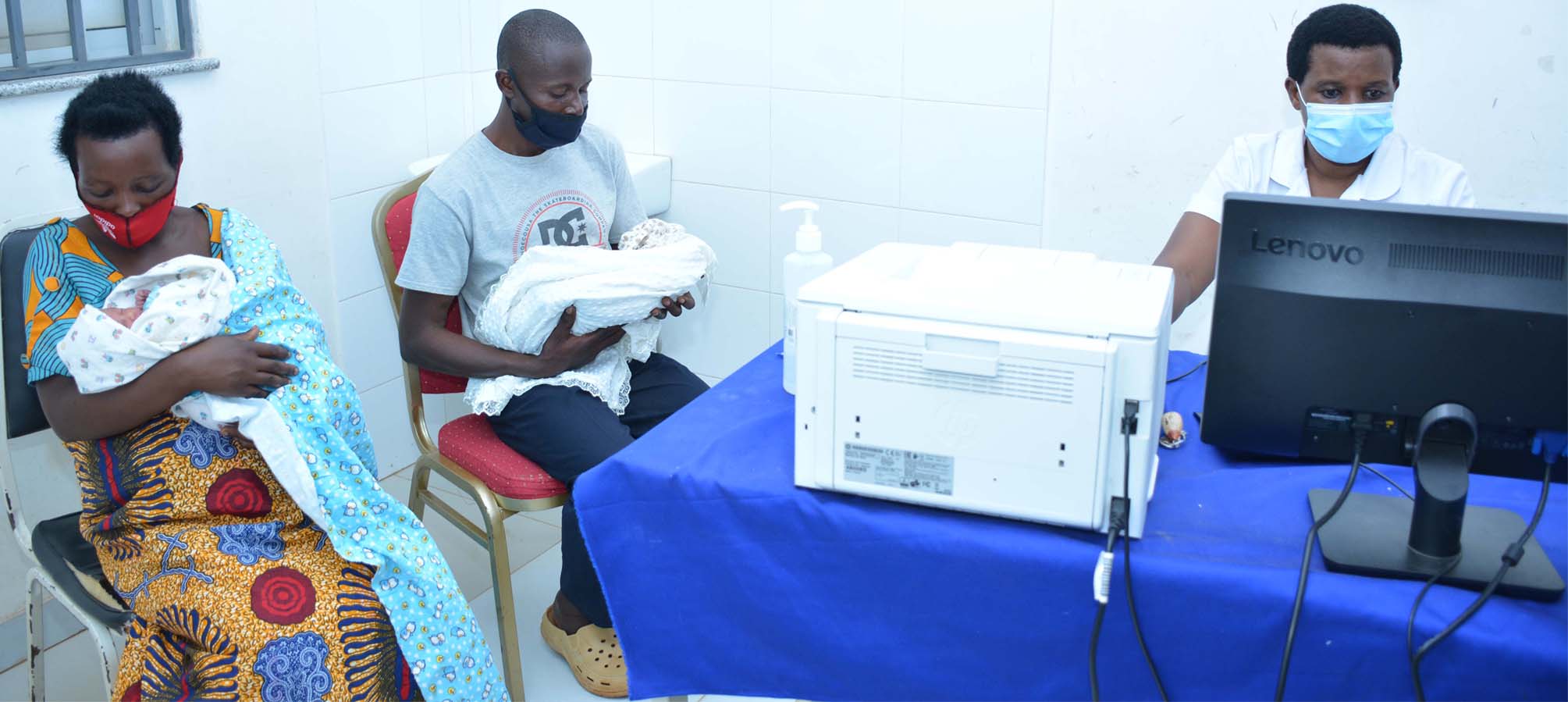 Mother and father holding newborn twins at registration office
Mother and father holding newborn twins at registration office
Ntirugirimbabazi Claudine, a mother of three in the Karama Sector of the Huye District in the Southern Province of Rwanda, had to register her children’s births, as all parents are required to do. She recalls her experience right after she had delivered her babies when she had no other option but to travel to the local government sector offices for registration and birth certificates.
“When our first two children were born, it was my husband who went to the sector office. He took his ID and mine to the Civil Registration Officer and the babies were registered. Even if you had suffered complications during birth, you were required to go to these offices, and it wasn’t easy. The requirements were many, the process was lengthy, and you had to spend money and time on it,” said Claudine.
Just like Claudine’s family, thousands of other families in Rwanda were experiencing hardship in registering their children. The law required them to travel to one of Rwanda’s 416 local government sector office, often forcing parents to take leave from work or childcare duties, and incur transportation costs, in addition to registrant service costs. Moreover, while Rwanda had already been using electronic registration systems, these were fragmented, leading to incomplete databases.
These challenges contributed to Rwanda’s low birth registration rate among children under-5, which stood at only 44% in 2014, with only five percent of these children receiving birth certificates (2014/15 Demographic Household Survey, DHS). Without registration, children cannot enroll in social assistance programs or be admitted to school and protected from child labor and early marriage. Adults cannot apply for identification which is required for employment and a driver’s license, or open a bank account and access credit to grow their business.
Decentralizing Birth Registration: A Game Changer
With a vision of Making Every Life Known and Count, the government of Rwanda committed to address these challenges as outlined in the national civil registration and vital statistics (CRVS) strategic plan. Rwanda’s National Identification Agency (NIDA), supported by the World Bank, the Global Financing Facility (GFF) and the Identification for Development (ID4D) initiative, under the World Bank Strengthening Social Protection Project, embarked on modernizing the CRVS system to ensure legal identity for all, good governance, and evidence-based decision making for sustainable development.
First, the government addressed the issue of service accessibility. The 2019/20 DHS showed that 93% of births in Rwanda took place in health facilities, where children also sought care during their first year of life. Enabling families to register their children in these facilities before discharge would help improve registration rates. However, the 2016 Law Governing Persons and Family law prohibited health facility officers to register life events and issue legal certificates. In 2020, the government amended this law to assign Civil Registrar roles to these officers, a landmark change that provided the legal framework to establish the new, modern system and paved the way for timely and electronic registration and certification of vital events.
“It is one of the best experiences to provide birth registration services to citizens knowing that they won’t have to travel to the sector offices to register their newborns. A timely and easy service made possible with the new system is a big milestone,” says Murebwayire Marie Grace, the Civil Registrar at Nyamata District Hospital.
Enhancing Digital Systems Brings Social Services Closer to the People
Over two years, the government also tackled multiple layers of system inefficiencies. A key change was assigning a unique identification number to each registered child after birth and enabling the direct, and real-time linkage of births and deaths to the national population registration system. Health facilities have been equipped with hardware and internet connectivity and almost 1000 health officials have been trained as civil registrants. To date, 483 health facilities in all 30 Districts are connected to the national system. In parallel, the government rolled out awareness raising programs to sensitize the public on the importance of timely registration. As a result, between August 2020 (when the system was launched) and January 2021, around 70,800 births and 1350 deaths were registered in health facilities.
With more complete and accurate databases, the government can now target social welfare support to the right beneficiaries. For example, the ongoing Nutrition Sensitive Direct Support program, which targets poor pregnant women and / or children under 2 can track services provided, such as post-natal care and child growth visits and make timely cash transfers to eligible families. This will be a step forward to enable these families to access other benefits to improve their growth, learning and earning capabilities, which are fundamental to enhancing human capital in Rwanda.
“Child registration, done immediately after birth at health facilities offers a unique national identification number, which is the basis for child tracking and growth monitoring in Rwanda’s efforts to fight malnutrition and stunting,.” says Uwicyeza Esperance, a Social Protection Implementation Unit Coordinator at Local Administrative Entities Development Agency.
The new CRVS system will enable families with younger children to easily access COVID-19 and other emergency-related benefits. It will also allow timely registration of deaths and their causes to help the government’s pandemic response and recovery efforts.
Now, Claudine talks about the ease of the process and is happy that their children can access benefits.
“This time around, my sister in-law helped me with the process right there, in the hospital. I was only required to show my ID. We were told that our child is now electronically identified in all other relevant government databases and we were given a number to use to get the birth certificate from Irembo. With our child known, we will now be able to access financial benefits to take good care of her.”

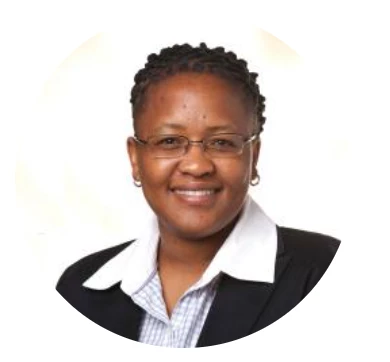
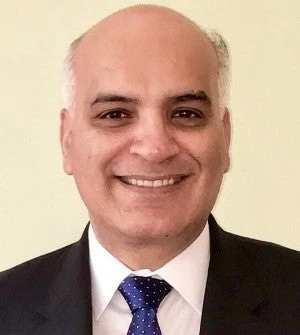
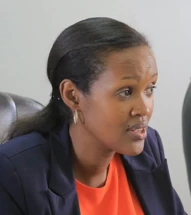
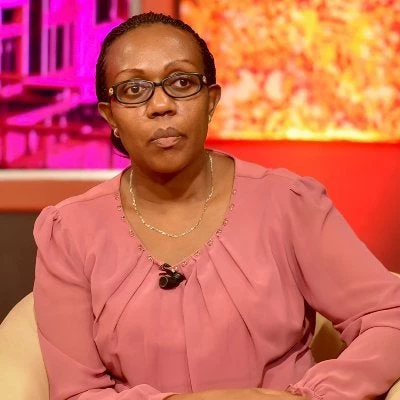
Join the Conversation